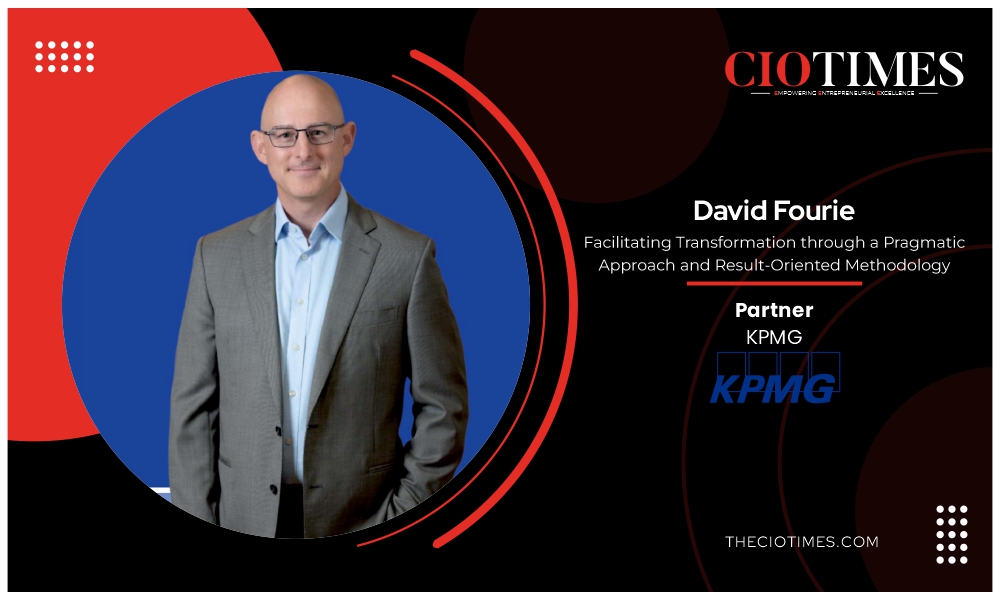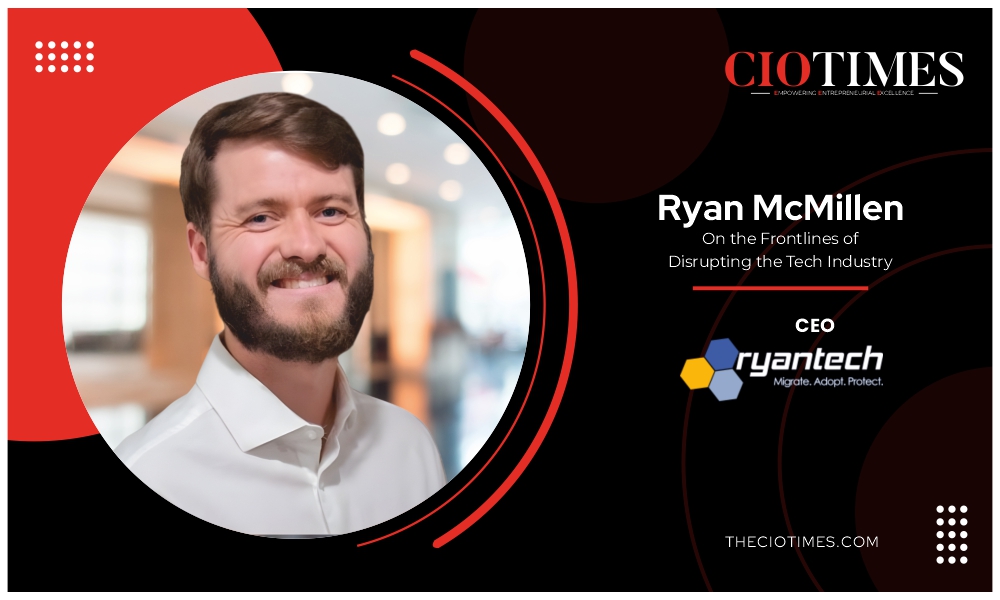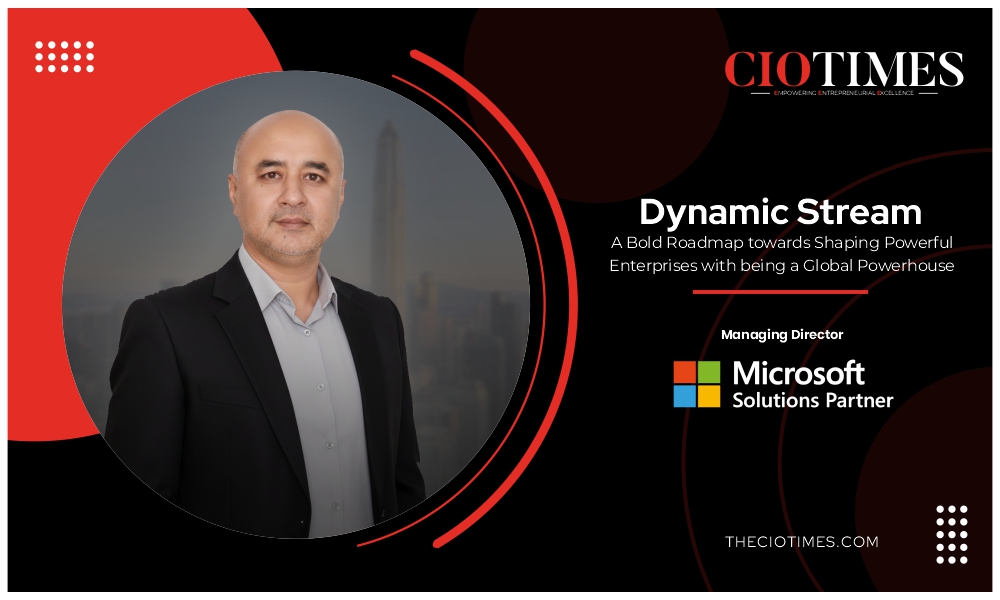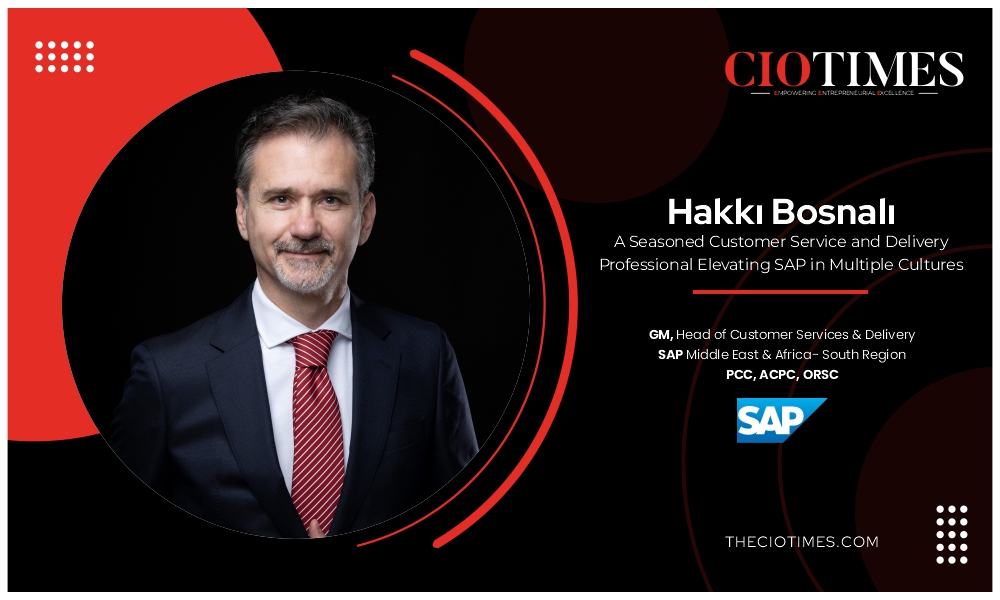KPMG stands as a beacon in the world of finance, renowned for its unwavering commitment to guiding businesses through the labyrinth of financial transformation. As a Finance Transformation Partner, KPMG empowers organizations to navigate the tumultuous seas of disruption, particularly in the aftermath of events like the COVID-19 pandemic[EL2] . The firm adds value for its clients by elevating the finance function beyond traditional boundaries, transforming it into a strategic partner that not only manages historical data but also actively drives growth and strategic decision-making.
As a Partner at KPMG for 15 years David Fourie leads the KPMG Finance Transformation team focused on Financial Service companies as well as the team developing the KPMG Digital Finance managed services solution. With a suite of services that have been honed across various industries, KPMG’s[ST3] finance transformation offerings are not just about enhancing the finance function; they’re about enriching the entire organization. The finance transformation teams focus on addressing the growing agenda and evolving responsibilities of Chief Finance Officers (CFOs) and Finance Directors, enabling sustainable growth and a future-ready finance function supported by innovative approaches, digital advancements, and deep knowledge.
A Long-Standing Partnership
As a kid growing up in South Africa, David was highly interested in technology and spent a great deal of time coding. However, opportunities that were more centered around technology were less available and the maturity of technology wasn’t anywhere close to today. He therefore decided to pursue a career as a Chartered Accountant and Auditor. This led him to KPMG where he started in South Africa before moving to the US in 2002.
As his career progressed, David spent time within KPMG’s [ST4] Audit and Advisory practice and joined the KPMG Partnership as part of the Class of 2009. Shortly after he switched his focus to be solely on providing clients with consulting services. Although his work was initially more centered around how businesses improved what existed within their current processes, David migrated with increased interest to how technology can help clients.
KPMG provided David with the opportunity to expand his skills and knowledge across the data, technology, and processes landscape. During the period where he focused on data, he looked critically at how technology, especially search-based technology, could transform how to solve data extraction and data integration challenges. For a while around 2016, he led a technology team at KPMG that explored these technology solutions.
As he moved from this area in 2017 to focus on supporting clients within a company’s Finance Functions (financial reporting, regulator reporting, financial planning, and analysis), David increased his focus on Cloud-based Finance applications. Financial Services companies were just reaching the point of looking at replacing their legacy technologies that in many cases were 20+ year-old ERPs. During this time, KPMG started expanding its service offerings to include an increase in managed services.
Focus on Finance
The exploration with his clients on what is possible and how to optimize the use of Finance technologies that enabled fundamental change in how they can deliver services to their internal customers and regulators led David to focus on leading a team of resources at KPMG that are helping develop KPMG Digital Finance. This journey started in 2020 when collaborating with several of KPMG’s Alliances (primarily Aptitude Software and Microsoft Corporation), they developed a pre-configured, fully managed Finance solution. This journey is ongoing as they continue to expand the functionality and the rapidly evolving technology landscape that now is ever increasingly incorporating AI, with a focus on incorporating the proper processes and guidelines to use it responsibly. The solution KPMG launched officially in April 2024, represents an AI-enabled financial reporting solution with an extremely high degree of automation. Consistent with its objective, KPMG Digital Finance will continue to evolve and provide its clients with a modern finance architecture and advanced AI capabilities. This solution is provided on a subscription basis to clients where access to the fully managed solution is provided, inclusive of all technology costs and support.
Technology Enabled Solutions
At KPMG, David and his team have worked on two advanced technology-enabled solutions. The initial solution that focused on data extraction and enablement was during the early days of KPMG starting to develop solution-oriented capabilities. More recently, David and his team have had the opportunity to work with KPMG’s Alliance partners to develop a pre-configured and fully managed finance solution – KPMG Digital Finance. KPMG Digital Finance is a fundamental move away from tradition where companies license finance applications and go through lengthy and complex implementations.
Technologies used in finance departments are continuously evolving and for most organizations is a highly complex project. Finance departments and teams have long-established processes and technology solutions and typically only go through transformations once in several decades. Adopting new, Cloud-native, technologies and fundamentally changing the way organizations work is a significant challenge. Companies need to change how they have worked in the past and several cases, there is a default to “this is how we’ve done it in the past” and even a mentality of “if it is not broken, why fix it?”. However, the opportunities provided by modern finance technology mean that organizations cannot just fit the technology into current processes. Typically, if they do that, they’re more likely to implement a sub-optimal solution.
The solution David and his team have provided clients through KPMG Digital Finance is an advanced, trusted AI-enabled, finance function that will continue to evolve and enhance. They intentionally developed this as a modular solution which will enable them to add, upgrade, or replace the technology components included in the solution today with the latest and advanced technologies. This means that as they continue to expand the KPMG investment in responsible and ethical AI-enabled solutions, the client will have access to these advanced technologies through a subscription model, rather than licensing and building it themselves.
David and his team therefore encourage their clients to change their approach and think about a complete modernization of their finance function, not just a transformation. “You have to align the capabilities you need appropriately to the enabling technologies. Once you’ve got these aligned you move to a process that’s aligned with the new technology solution which in several cases is a very significant change. For example, for one of my clients, we’ve now moved to real-time integration with their operational systems. The data we’re moving into the finance architecture is at an event level and very granular. Finance processes are executed on a daily basis and, rather than having the finance team perform the tasks they have done in the past, we’re enabling them to monitor processes through published analytics,” he explains.
“This journey is ongoing as we move to a process where a dynamic close process becomes a reality. Through this project, we are fundamentally changing how finance works. This degree of change is hard and means that finance professionals need to be comfortable with the data and analytics created in the process when they are not creating these in Excel themselves,” adds David.
Enabling a Digital-first Finance Organization
David emphasizes that there is no single solution that can give finance everything they need. There are also significant nuances between a Financial Services organization and a manufacturer. Having said that, he shares that there is a core suite of applications that, when brought together in the right way can deliver a high degree of automation and efficiencies. Access to high-quality data is key to enabling the core Finance applications.
Financial Services and other similar industries have a unique challenge where the majority of their business activities originate outside the traditional ERP. Whereas a manufacturing company largely operates within an ERP. By focusing on what is needed for a Financial Services company, businesses typically expect the following core technologies within the Finance technology landscape:
• Accounting rules engine/finance hub to receive the business process data at a low level of granularity. This effectively becomes the sub-ledger for transactions not originating in the traditional ERP sub-ledgers.
• Core ERP providing traditional ledger processes [ST13] and finance sub-ledgers (e.g. Accounts Payable, Accounts Receivable, Fixed Assets)
• Reconciliation application to enable balancing and transaction matching processes.
• Consolidation application to support complex consolidation for financial reporting.
• Financial reporting collaboration tools to prepare the financial statements and enable SEC reporting requirements.
• Regulatory reporting software
• Financial planning and analysis applications focused on budgeting, strategic planning, and forecasting.
• Management reporting solutions that provide analytic and dynamic reporting capabilities
“These core applications continue to be augmented by supplemental applications and, ever increasingly, AI-enabled solutions,” explains David.
Looking into the Future
David suggests that the advancement of technologies and the degree of continuous change that is needed will lead to an increase in managed Finance solutions. Advanced technologies will increasingly focus on solutions and not applications that need to be implemented. Having access to managed solutions will enable companies unparalleled speed and access to new capabilities as the managed solution providers will deliver these new solutions as a service.
“KPMG Digital Finance established this capability for KPMG as we continue to grow our managed services capabilities. By establishing our subscription-based finance solution, we’ve opened up a new world for companies where they can seamlessly access finance capabilities and solutions without having to be concerned about maintaining the technologies or what they need to keep pace with the digital evolution,” he says.
KPMG’s focus is on growing its managed services and KPMG Digital Finance is one of the ways the firm is enabling its clients to fundamentally change their finance operating models. “We aim to continue to evolve and expand the capabilities we provide our clients so that they can access advancements easily through a managed service rather than having to “built it themselves”. Through this, we aim to empower our clients with the ability to focus on delivering value for their companies and taking away the concern and challenges of the enabling technology and processes,” shares David.
David encourages emerging tech enthusiasts to think big.
“Challenge how things are done today and don’t be constrained by the universal perceptions. The future is shaped by those that understand where we are or should be going and not by how we change what we do today.”
KPMG LLP (KPMG) Should we be talking about compound volatility here? Rather than a single event?
“KPMG’s” is an incorrect usage of the KPMG mark, which does not have an apostrophe, and is also grammatically incorrect when used in a trademark sense, because in any trademark the word KPMG is an adjective, not a noun. We shouldn’t be using possessives in the names of products or services. Where possible, please avoid use of KPMG in the possessive form (misuse of the KPMG trademark per OGC) – suggested alternative: our, our firm’s, the KPMG ___, KPMG LLP’s “KPMG’s” is an incorrect usage of the KPMG mark, which does not have an apostrophe, and is also grammatically incorrect when used in a trademark sense, because in any trademark the word KPMG is an adjective, not a noun. We shouldn’t be using possessives in the names of products or services. Where possible, please avoid use of KPMG in the possessive form (misuse of the KPMG trademark per OGC) – suggested alternative: our, our firm’s, the KPMG ___, KPMG LLP’s The KPMG LLP copyright appears once on printed materials, but on every page of digital communications for all KPMG U.S. internal and external content.
© 2024 KPMG LLP, a Delaware limited liability partnership and a member firm of the KPMG global organization of independent member firms affiliated with KPMG International Limited, a private English company limited by guarantee. All rights reserved.
“KPMG’s” is an incorrect usage of the KPMG mark, which does not have an apostrophe, and is also grammatically incorrect when used in a trademark sense, because in any trademark the word KPMG is an adjective, not a noun. We shouldn’t be using possessives in the names of products or services. Where possible, please avoid use of KPMG in the possessive form (misuse of the KPMG trademark per OGC) – suggested alternative: our, our firm’s, the KPMG, KPMG LLP’s Either remove reference to alliance partners or give them a heads up Who is they?
Please ensure that proper KPMG branded names have been through the firm’s naming review process. Legacy names used in market prior to 2016 can continue to be used unless there is a significant increase in scope, client base, or functionality and/or the current name is no longer relevant. Until the name has been approved, or if a proper name is not needed, please change to sentence case. See KPMG Approach to Naming guidance for additional guidance. See U.S. Naming Request Form to submit proposed names for review.
This is an approved KPMG Branding and currently under Trademark filing “KPMG’s” is an incorrect usage of the KPMG mark, which does not have an apostrophe, and is also grammatically incorrect when used in a trademark sense, because in any trademark the word KPMG is an adjective, not a noun. We shouldn’t be using possessives in the names of products or services. Where possible, please avoid use of KPMG in the possessive form (misuse of the KPMG trademark per OGC) – suggested alternative: our, our firm’s, the KPMG ___, KPMG LLP’s lowercase Should this read “where we traditionally process”?
Problematic term “UNPARALLELED”- Such terms can only be used if the terms or phrases can be objectively and lndependently substantiated. Suggested Alternatives: One of the leading, of the top performers, strive for top quality, among the largest This term is difficult to substantiate. We do not want to over-promise results. Consider changing to one of the alternatives: efficiently, effectively, thoroughly, broadly, cohesively.
“KPMG’s” is an incorrect usage of the KPMG mark, which does not have an apostrophe, and is also grammatically incorrect when used in a trademark sense, because in any trademark the word KPMG is an adjective, not a noun. We shouldn’t be using possessives in the names of products or services. Where possible, please avoid use of KPMG in the possessive form (misuse of the KPMG trademark per OGC) – suggested alternative: our, our firm’s, the KPMG ___, KPMG LLP’s
Read Other Magazines




